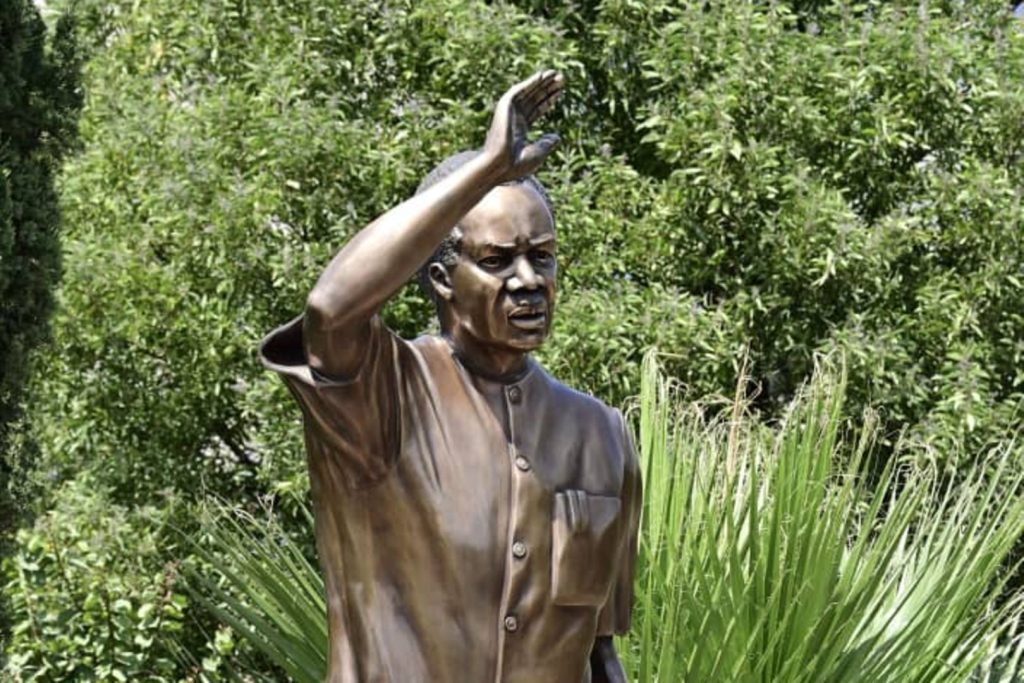Julius Nyerere, the founding father of Tanzania, has been commemorated with a statue outside the African Union headquarters in Addis Ababa, Ethiopia.
Leading Tanzania from its independence in 1961 until 1985, Nyerere, affectionately known as Mwalimu (Swahili for ‘teacher’), was a devoted pan-Africanist. He provided sanctuary to independence fighters opposed to white minority rule in southern Africa and played a vital role in establishing the Organisation of African Unity, later transformed into the African Union.
At the statue’s unveiling ceremony, attended by several African heads of state, AU Commission leader Moussa Faki Mahamat remarked, “The legacy of this remarkable leader encapsulates the essence of Pan Africanism, profound wisdom, and service to Africa.” He recalled Nyerere’s seminal words at the inaugural OAU summit in 1963: “Our continent is one, and we are all Africans.”
Upon assuming office as prime minister of Tanganyika in 1961, Nyerere faced the arduous task of unifying a nation comprised of over 120 ethnic groups, including Arab, Asian, and European minorities. Through promoting the use of Swahili as a lingua franca and advancing the concept of “African Socialism” or ujamaa (familyhood), he successfully fostered unity.
In 1964, Tanganyika merged with the Zanzibar archipelago to form Tanzania. Despite criticisms of the one-party state, Nyerere defended it as vital for stability, contending that Tanzanians enjoyed greater freedoms than under British rule.
Advocating for an egalitarian society built on cooperative agriculture, Nyerere aimed for self-reliance over foreign aid. Though economic challenges persisted, his tenure witnessed significant improvements in healthcare and literacy.
Renowned for his modest lifestyle, Julius Nyerere championed Africa’s interests above personal gain or international approval. He opposed the expulsion of Asians from Uganda under Idi Amin and later intervened militarily to depose Amin.
Tanzania’s President Samia Suluhu Hassan paid homage to Nyerere’s selflessness, stating, “To him, Africa’s wellbeing came first, before popular approval, personal fortune, or country wellbeing.”
Julius Nyerere, a trained educator, made history as the first Tanzanian to study at a British university. His death in 1999, at the age of 77, led to the establishment of October 14 as a public holiday in Tanzania.
Nyerere’s statue joins those of Ghana’s Kwame Nkrumah and Ethiopia’s Haile Selassie outside the AU headquarters, symbolising their enduring legacies in Africa’s history and liberation struggle.

